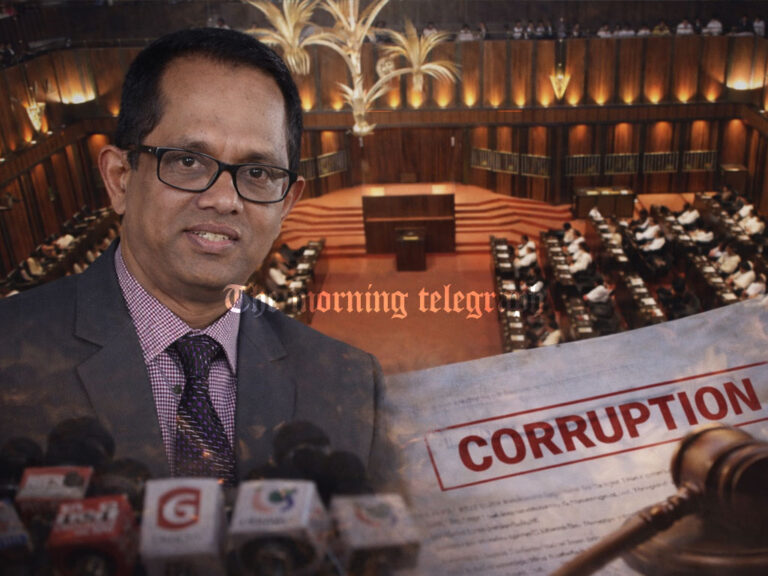
In a fiery address delivered at a local government rally in Kalawana, Pivithuru Hela Urumaya leader and lawyer Udaya Gammanpila launched a blistering critique of the National People’s Power (NPP) government, taking aim at its broken promises, treatment of war heroes, and what he claimed was a betrayal of public trust. At the heart of his speech was a single, powerful image: a three-wheeler that once bore a sticker proclaiming loyalty to the “Compass” — the NPP’s symbol — now brandishing a new slogan: “Karma can also come as a compass.”
Gammanpila recounted this transformation as symbolic of a broader shift in the public mood. “During the last election,” he said, “three-wheelers were proudly showing off stickers saying ‘This time for the compass.’ Today, they carry a warning: ‘Karma can also come as a compass.’ That alone tells you how deep the betrayal runs.”
Using the rally as a platform to advocate for the Sarva Jana Balaya, under which his candidates now contest, Gammanpila turned his focus toward what he called the government’s hypocrisy and selective persecution of those who fought to protect the country. At the center of his defence was Sivanesathurai Chandrakanthan, known as Pillayan, a former Eastern Province Chief Minister now facing legal troubles.
“Pillayan is no terrorist. He is a patriot,” Gammanpila asserted. “If not for his defection from the LTTE with six thousand cadres and his decision to fight alongside the Sri Lankan forces, the war would not have ended. And yet today, it is he who is being hunted — while former LTTE members sit in Parliament, lead NGOs, and walk free.”
He questioned the fairness of a government that forgives those who once fought for the LTTE but punishes those who fought against it. “Either everyone should be punished, or we forget the past and move on. But what’s happening now is nothing short of state-sponsored betrayal,” he thundered. “This is not a government of the people — it’s a government for the Tigers.”
Drawing a historical parallel, Gammanpila compared Pillayan’s journey to that of Keppetipola Disawe, who once served colonial masters before joining the freedom struggle and being immortalized as a national hero. “Pillayan was taken by force at 14. When he grew up, he chose the right side. Why should he be punished for that choice?” he asked.
The speech turned personal as Gammanpila condemned what he called the government’s callous treatment of everyday citizens, especially the working class. “Remember the promise to sell fuel at Rs. 150? To remove unfair taxes? To stop corruption and remove ministers’ commissions?” he asked. “What did they do instead? They went after the tuk-tuk drivers, the very people who trusted them.”
He detailed how police were now stripping three-wheelers of their personalized decorations, once a symbol of freedom and identity, under the pretext of road safety. “These drivers love their three-wheelers more than their wives,” he joked bitterly. “And now even that is taken from them.”
The symbolic unraveling of public support was encapsulated in one image: the betrayal felt by the three-wheeler community, once ardent supporters of the NPP, now disillusioned and wary. “That’s why they say, ‘The compass can come back as karma,’” Gammanpila said, his voice rising.
As he concluded, Gammanpila made a direct appeal: “Let us not be fooled again. Vote for the Sarva Jana Balaya. Vote to end the lies. Vote to protect those who protected us. Let us reclaim the country.”




